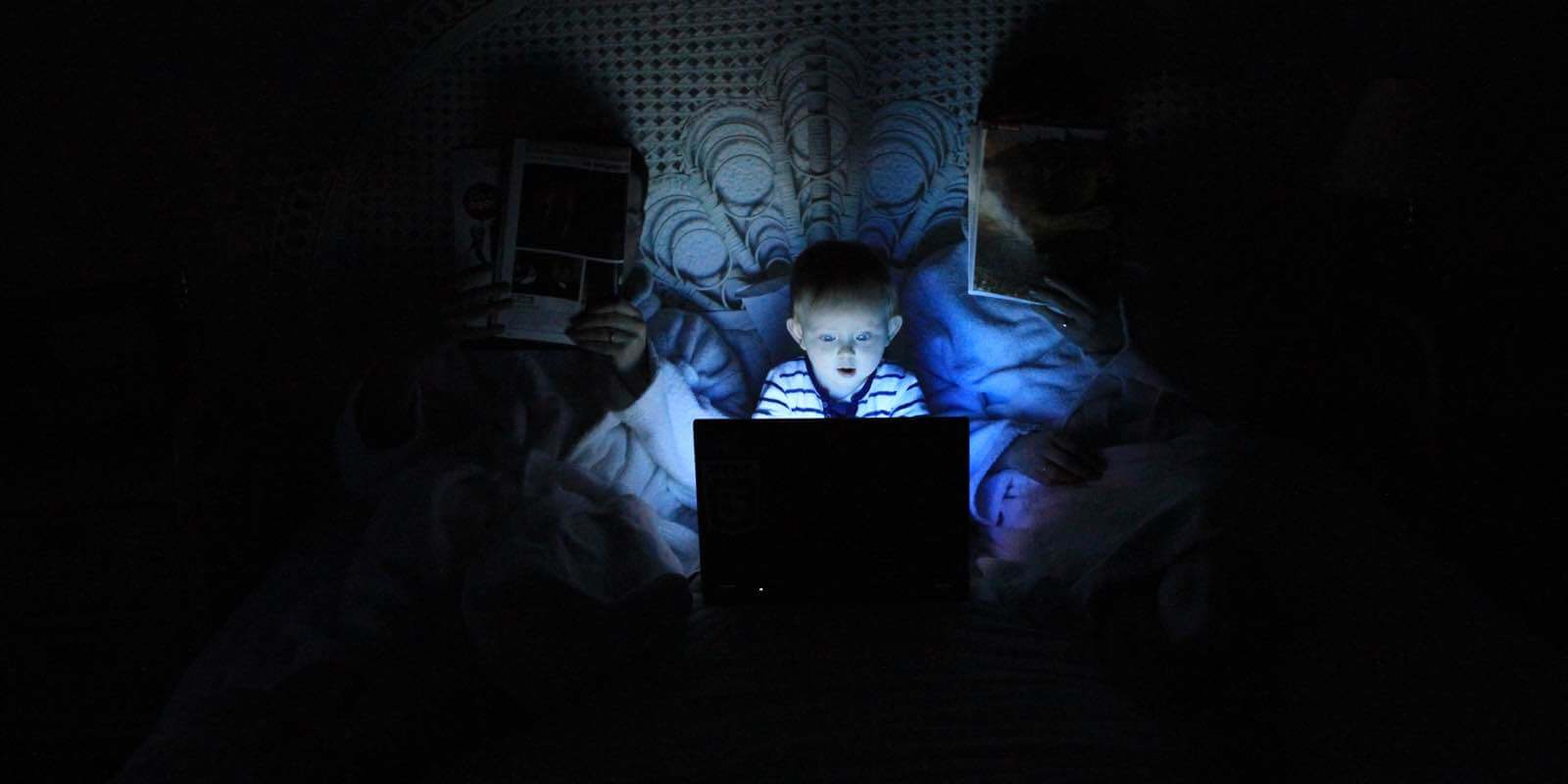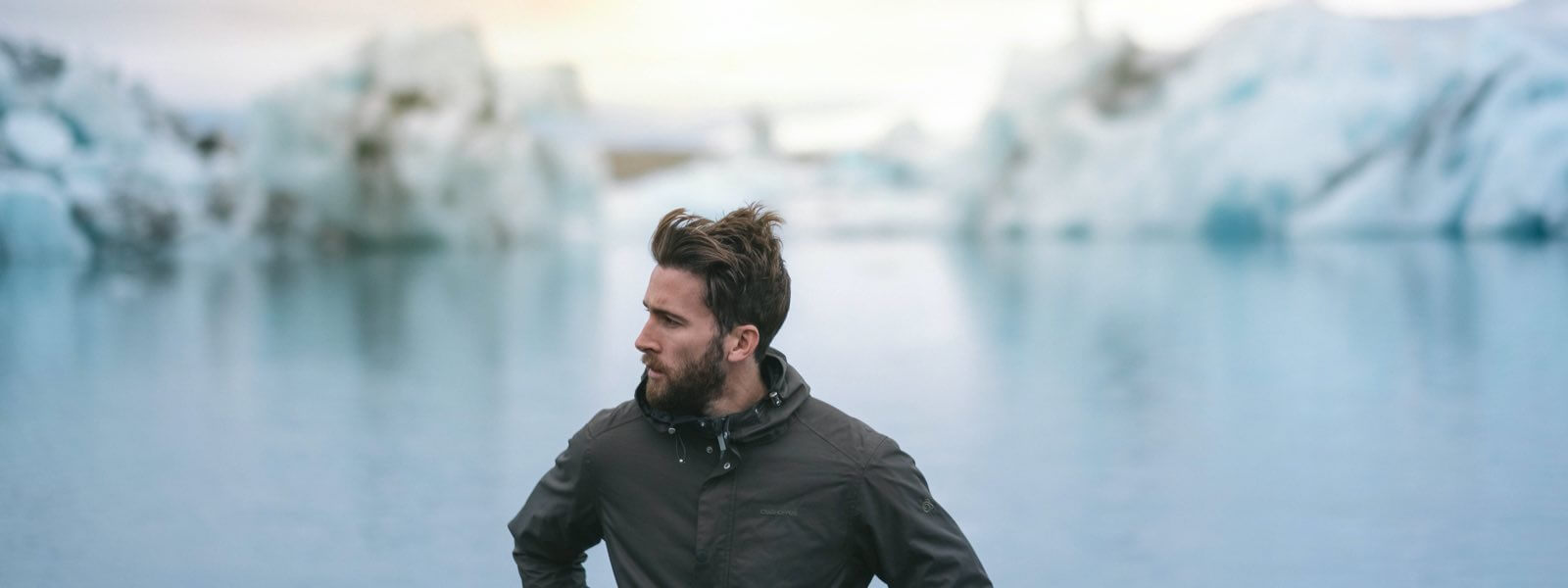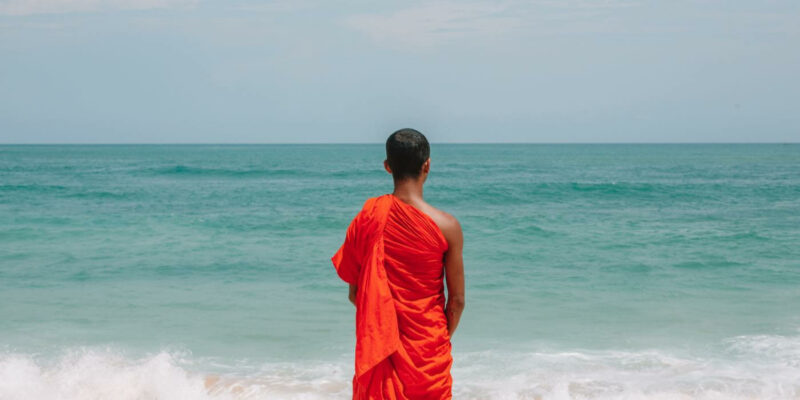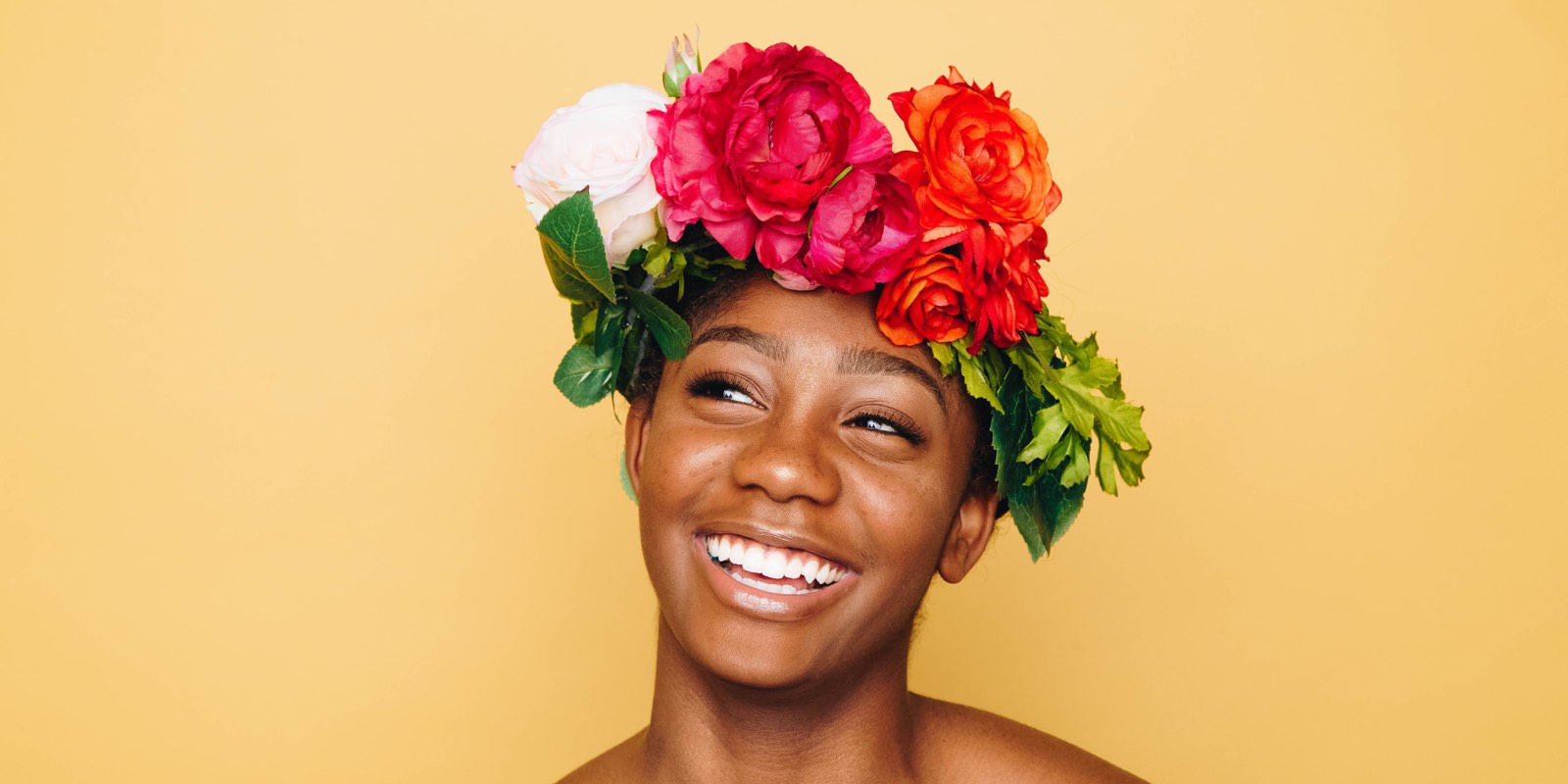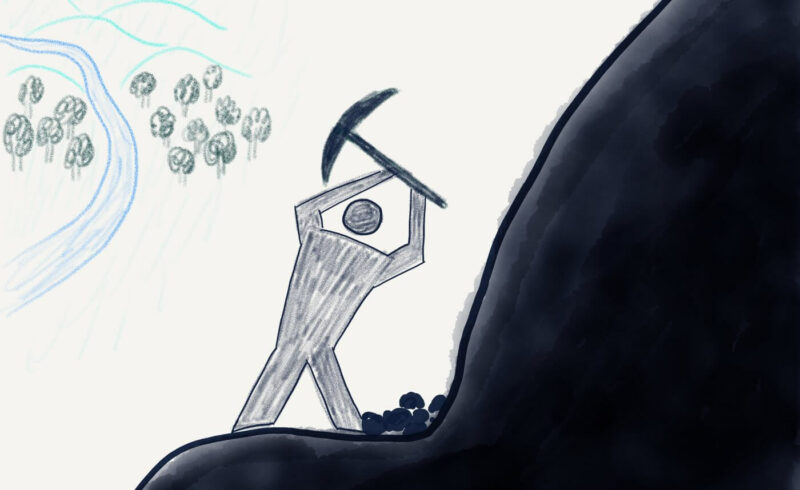We’ve all seen the apocalyptic headlines about sleep and blue light exposure:
- Reading On A Screen Before Bed Might Be Killing You
- How Technology & Blue Light Is Ruining Sleep & Making You Sick Fat & Tired
- Beware of Blue Light Before Sleep
- The light from your smartphone is (still) really bad for your sleep
- How artificial light is wrecking your sleep, and what to do about it
Sounds pretty dire…
But what’s the actual evidence that blue light exposure in the evenings is a major negative force on our sleep or life?
As you’ll see below, things are not quite what they seem.
First, a little science: What is “blue light,” exactly?
All light falls on a spectrum and the portion of the visible spectrum is often classified as ranging from warm to cool. Blue light, the kind of natural light emitted by the sun, is also emitted by LED lights and LCD screens common in many electronics like smartphones, tablets, and TVs. This blue light is on the cooler end of the spectrum and has unique effects on our eye and brain physiology.
Turns out, certain cells in the eyes are especially sensitive to blue light. When they’re exposed to blue light, they send signals to a part of the brain called the suprachiasmatic nucleus and tells it to decrease the production of a hormone called melatonin.
Melatonin does a lot of things, but one of its primary jobs is to help regulate our circadian rhythms and alerting signals. When melatonin levels are high, it contributes to sleepiness, and when melatonin levels are low we feel more alert and awake. Early in the morning, for example, exposure to blue light like the sun helps suppress melatonin and causes us to feel awake.
The concern that many people have, however, is that if we are increasingly looking at blue light-emitting devices in the hours before sleep, we’re essentially interfering with the body’s natural desire to sleep.
So, should we all stop looking at blue light-emitting devices before bed?
While it seems logical at first blush, it’s important to answer two additional questions about the relationship between evening blue light exposure and poor sleep.
1) What’s the magnitude of the effect?
While we know that blue light does affect melatonin and therefore sleep to some degree, how strong is that effect?
Think about it this way: We know caffeine makes us less sleepy in general—drinking an 800mg Starbucks coffee at midnight would almost certainly impair your ability to fall asleep.
But would 5mg of caffeine have any kind of meaningful impact on your sleep? What about 50mg? 100mg?
The answer, of course, is that it depends on the magnitude. 800mg? Definitely. 5mg? Nope.
So, rather than asking does blue light in general cause impairments to our sleep, the better question is: How much blue light does it take to impair our sleep? And is the amount that we’re exposed to after 20 minutes of looking at our phones really making a significant difference for our sleep?
2) Bad compared to what?
In addition to magnitude, we also have to think about the relative or comparative effects of blue light exposure on sleep. In other words, blue light may be negative, but compared to what?
For example, many people who have insomnia or trouble sleeping, worry a lot about their sleep. This worry leads to anxiety and arousal which makes it very difficult to fall and stay asleep.
For folks like this, it’s often better to read or even watch TV in bed since—even though the blue light may interfere with their sleep to some degree—it almost certainly interferes less than anxiety and worry would.
In other words, even if the goal is to fall asleep immediately upon getting into bed, falling asleep after 30 minutes reading on your iPad is probably better than falling asleep after two hours of worrying about not falling asleep.
With those two questions in mind, let’s look at what the research says about the actual effects of blue light exposure for sleep.
What are the actual effects of blue light exposure at night in terms of sleep?
Exposure to blue light in the evening does appear to suppress melatonin levels. And people who are exposed to blue light before bed tend to report not sleeping as well.
But, the actual effect of blue light exposure on objective sleep quality and duration appears to be very modest—borderline insignificant.
For example, one recent study from Harvard University found that participants who were assigned to read on an iPad before sleep did take longer to fall asleep than those assigned to read a print book, but the difference was less than 10 minutes!
Similarly, the study showed that people in the iPad condition experienced less REM sleep than those in the print book condition, but again it was less than a 10-minute difference.
Finally, the study also found that there was no significant difference between the two conditions in terms of total sleep time, sleep efficiency, or duration of deep sleep and other non-REM sleep stages.
Findings like this are fairly typical of the research on the effects of blue light exposure before bed: Yes, blue light does negatively impact melatonin levels and to some extent, impacts sleep, but the magnitude is quite small and unlikely to be a significant factor in your overall sleep.
Think about it: Does sleeping for 7 hours and 30 minutes per night really make any kind of meaningful difference compared to sleeping for 7 hours and 40 minutes?
Of course, it would be ideal if we all didn’t use any electronics in the evening and simply lay down in bed and fell asleep without doing anything. And that’s a fine goal to work towards.
Just be cautious of all the fear-mongering about blue light devastating your sleep.
The anxiety that most people feel about blue light likely has a far greater negative impact on their sleep than the blue light itself!
Should I use those goofy blue-light blocking glasses?
If you want to make sure you look your best before bed, go for it. But they probably won’t improve your sleep.
Here’s the conclusion from a recent meta-analysis of all the research to date on blue-light blocking lenses:
We find a lack of high quality evidence to support using BB spectacle lenses for the general population to improve visual performance or sleep quality, alleviate eye fatigue or conserve macular health.
It’s also good to remember that sleep is something our bodies are really good at doing naturally, on their own. We just have to stop getting in the way.
Unfortunately, letting your body just do its thing is not something people can make money on. On the other hand, getting people worked up about and afraid of their sleep is an incredibly lucrative business model.
For an excellent overview of the most recent research on blue light blocking glasses, check out this article from Healthy But Smart: Do Blue Light Blocking Glasses Do Anything? A Review of The Research
Takeaway
Yes, blue light has been shown to affect melatonin levels and in some cases mildly impact sleep duration and quality; however, these effects are tiny and almost always outweighed by the effect of worrying and being anxious about blue light’s effect on your sleep.
If you’re having significant sleep difficulties such as Insomnia, Cognitive-Behavioral Therapy for Insomnia (CBT-I) is the most researched-backed treatment out there and is recommended as the first-line treatment by nearly every major medical and mental health association.
